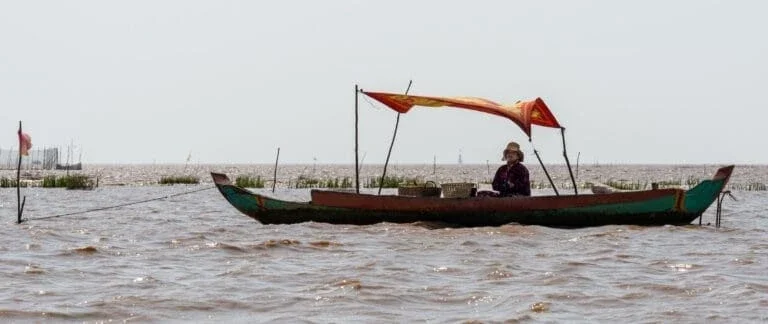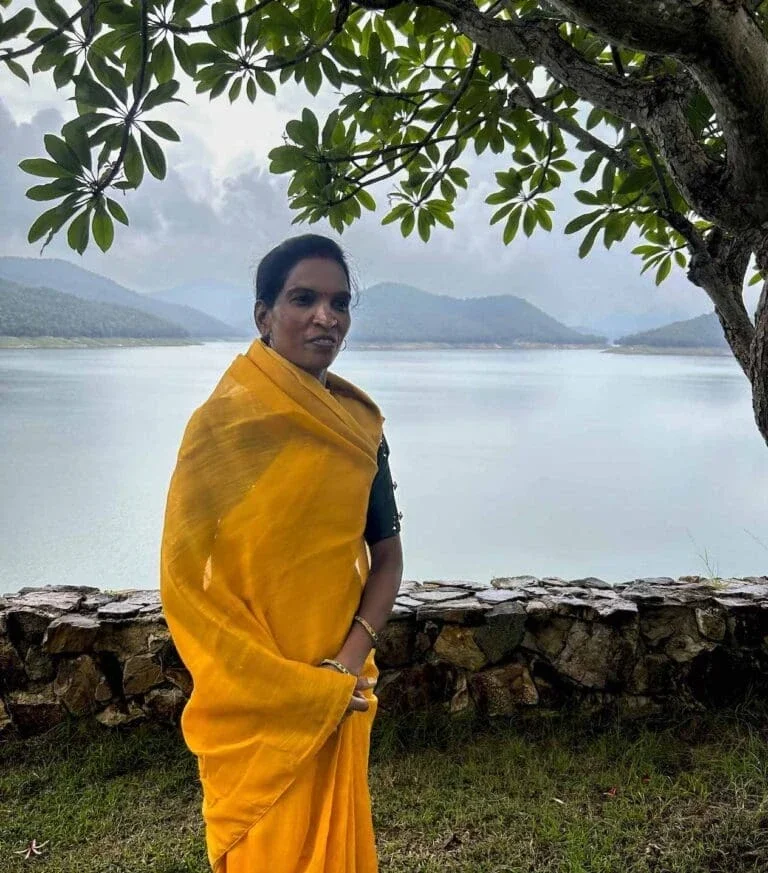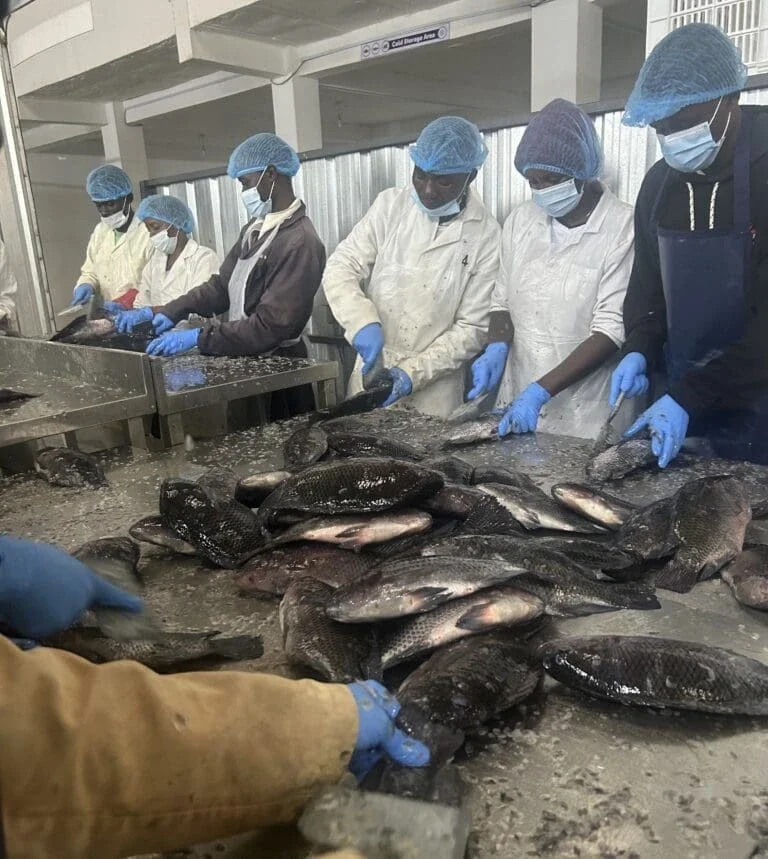“I don’t try to fool myself that the stories of individuals are themselves arguments. I just believe that better arguments, maybe even better policies, get formulated when we know more about ordinary lives.”
– Katherine Boo, Behind the Beautiful Forevers, and the epigraph for Arati Kumar-Rao’s Marginlands
In the 1980s, Arati Kumar-Rao’s father built the family a solar cooker – a wooden box painted black and lined with aluminum foil. Kumar-Rao and her sister were given the after-school chore of turning it toward the sun so that food would be ready by dinnertime.
She lived in the throbbing city of Mumbai, then known as Bombay, but in a quieter gated and wooded community called Tata Colony, because her father worked for Tata Power Company.
An avid environmentalist, her father did not believe in owning a car, so the family relied on bicycles and public transportation. He took his daughters bird-watching on Sundays. He often read aloud the work of environmental activist and poet/novelist Wendell Berry.
Her mother was a schoolteacher “and there were a lot of books and stories and conversations,” she recalls. And photography. “I always used to borrow cameras from the elders. When I was 21 years old, I saved up and bought my own.”
In early adulthood, Kumar-Rao took a job at a multinational corporation. “I lost my way for ten years,” she says now. “I had a great time, but it wasn’t what I wanted to do. So I gave up a paycheck for the uncertain life of a freelancer.”
It has more than paid off. Kumar-Rao’s first book, Marginlands: Indian Landscapes on the Brink, was published in 2023, and she spoke at a Bellagio climate convening aimed at building a new class of climate funders for India. Through a National Geographic grant, she currently is documenting climate-forced migration in India.
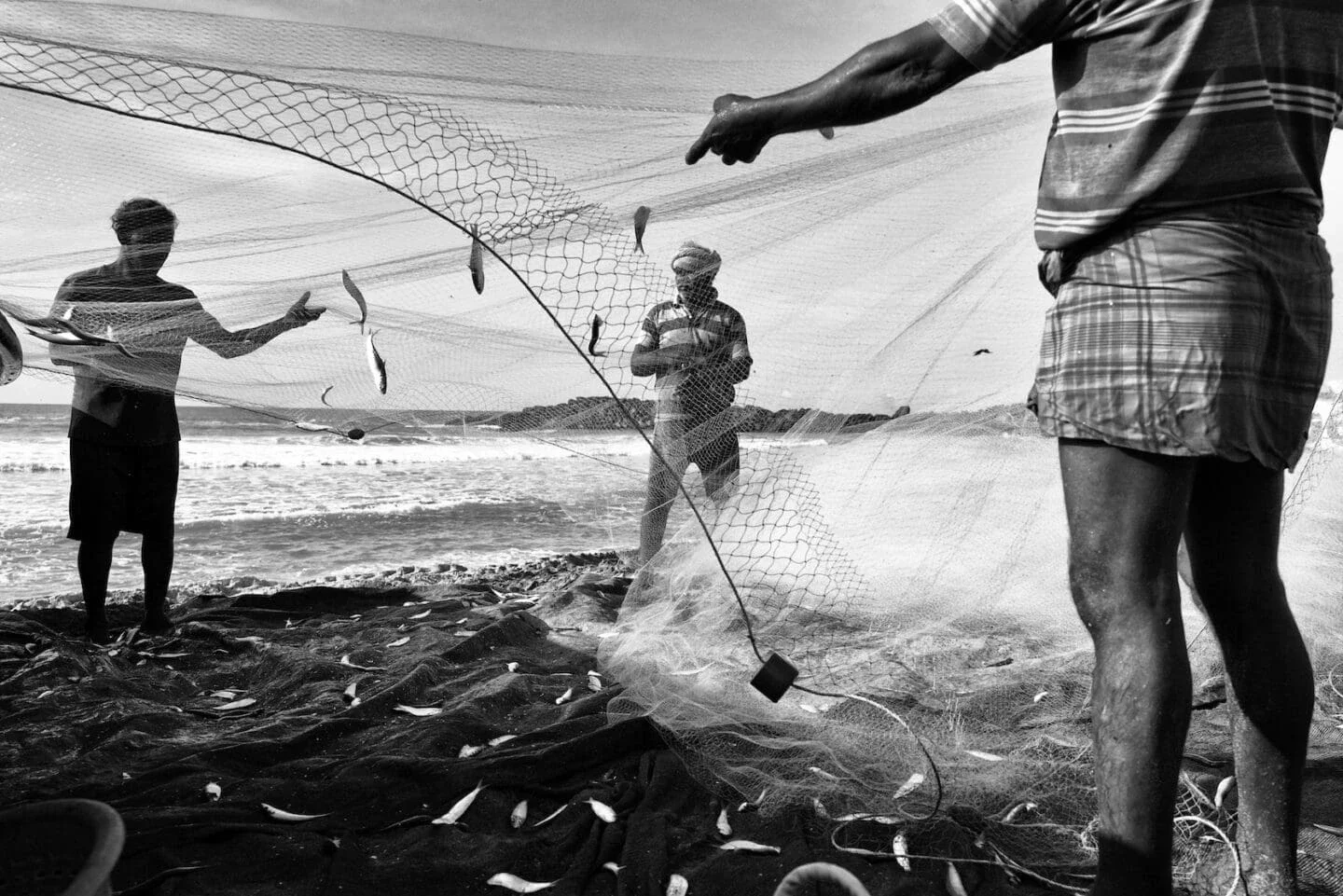 Fishing in the Brahmaputra River is barely viable, with fish stocks having plummeted 85-90%. (Photo Credit Arati Kumar-Rao)
Fishing in the Brahmaputra River is barely viable, with fish stocks having plummeted 85-90%. (Photo Credit Arati Kumar-Rao)
Climate change triggered more than half the new displacements in 2022, and a 41 percent increase over 2008 levels, the United Nations Refugee Agency says.
From the Kerala coastline to the Sundarbans forests, following desert dwellers, fisherfolk and shepherds, Kumar-Rao’s focus is on what she calls “people of the land.”
“There hasn’t been much else that has grabbed me,” she said.
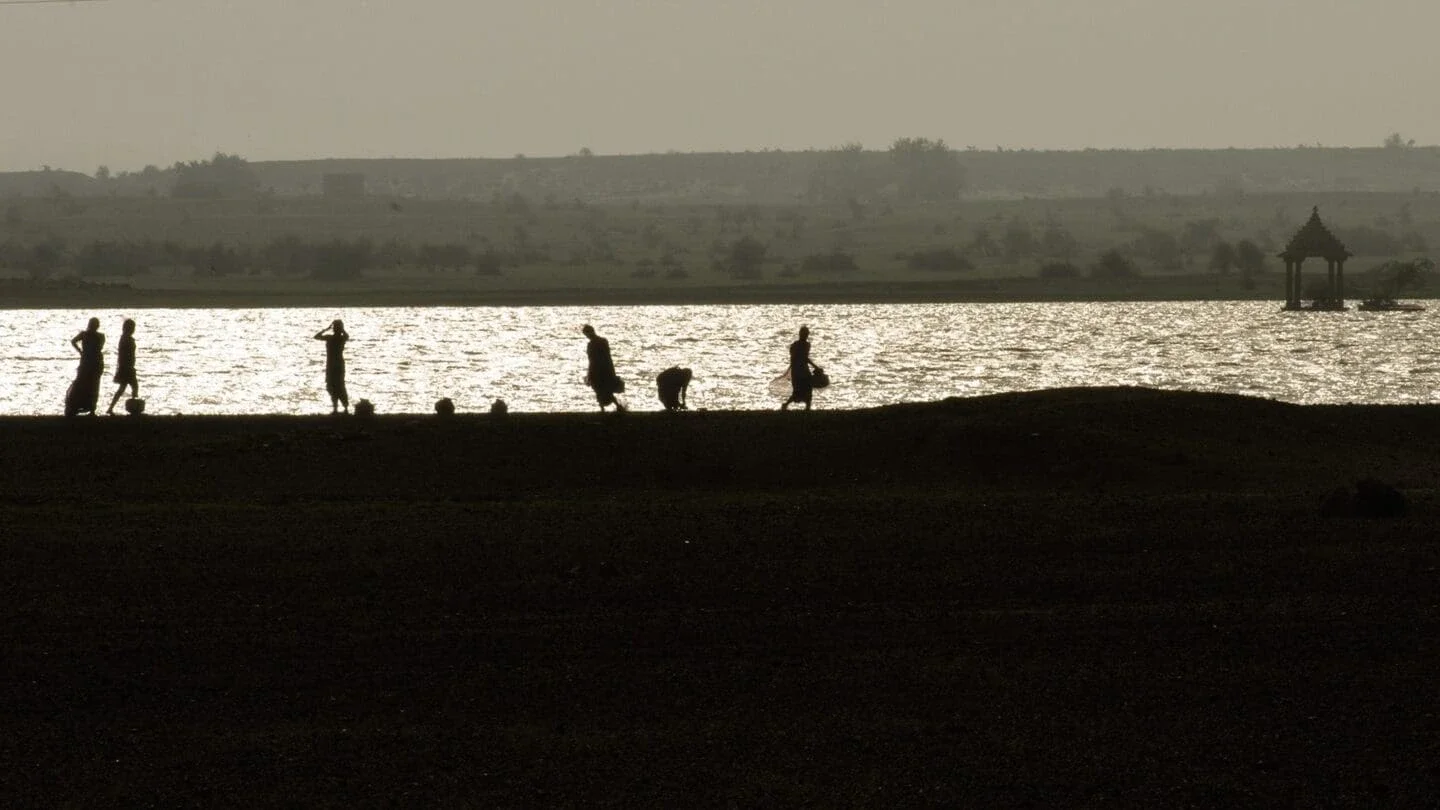 Fishing in the Brahmaputra River. (Photo Credit Arati Kumar-Rao)
Fishing in the Brahmaputra River. (Photo Credit Arati Kumar-Rao)
Hanging Back, Talking to the Women
Marginlands is about how people are working to adapt and survive in India’s landscapes under threat, where development has sometimes been thoughtless, dams unnaturally divert rivers and block sediments, or land is “the color of burnt caramel.”
Being a woman, Kumar-Rao said, has helped her reach into otherwise hidden corners to understand how degraded environments impact lives.
“It is always the men who are eager to step up and tell me about the problems. I have to specifically ask to speak to the women. Even then, the men will be hovering, telling me what the woman is trying to say. Reinterpreting,” she said.
“So I fall back, I walk beside them. Then there are moments of comradery. Being a woman affords me that advantage.”
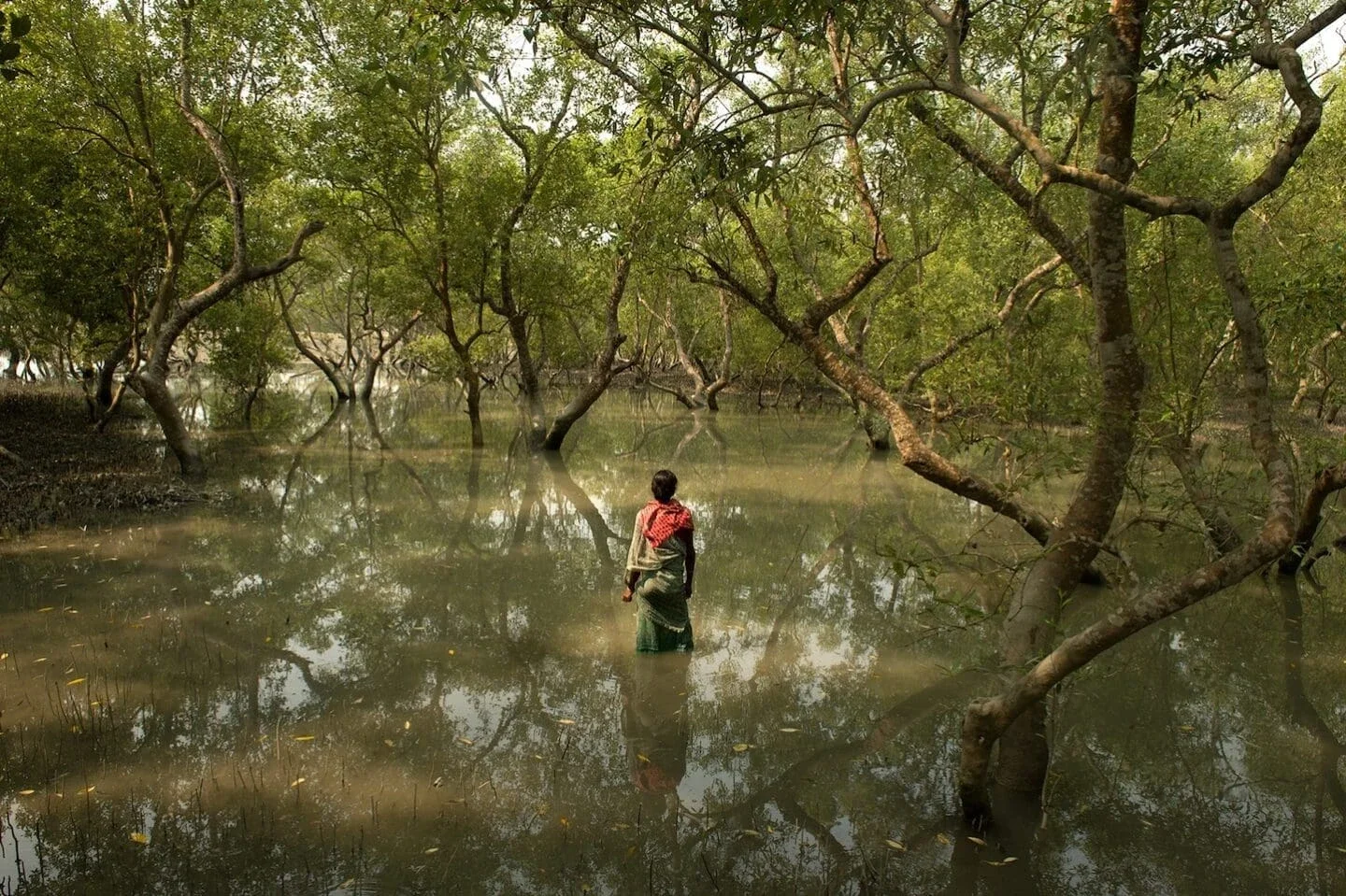 Kabita Mandal waits for a crab to bite her line as the tide begins to rise. She is one of the "tiger widows" of the Sundarbans, left to eek out a living on her own. (Photo Credit Arati Kumar-Rao)
Kabita Mandal waits for a crab to bite her line as the tide begins to rise. She is one of the "tiger widows" of the Sundarbans, left to eek out a living on her own. (Photo Credit Arati Kumar-Rao)
Sidelining the voices of mothers and grandmothers, daughters and wives would sharply curtail our understanding of climate change’s impacts, she said.
“They open up to me, and they whisper the real thing—what they go through when there is displacement, and how they care for the family in these endangered landscapes,” Kumar-Rao said.
As the world takes on the challenge of climate change, “it is imperative that we accord profound attention to the resonance of women’s voices,” said Deepali Khanna, Vice President, Asia, The Rockefeller Foundation.
“To authentically craft enduring solutions, we must not merely register these voices, but rather engage in rigorous and attentive listening, recognizing their cadence of insight and empowerment as instrumental to our collective efforts. Arati Kumar-Rao’s Marginlands does an exceptional job of bringing these perspectives to life.”
Kumar-Rao also focuses on how manmade changes have triggered a loss of biodiversity, from bees to vultures to dolphins. India is home to four out of the globe’s 36 biodiversity hotspots, where human development threatens significant loss of plants and animals.
Hope, Plus Action
India, with 1.4 billion people the world’s most populous country and third-largest emitter of greenhouse gases behind China and the United States, faces a varied range of climate change risks from seashores to interior.
Rainfall increases of 10 percent or more, coupled with rising sea levels, have the potential to submerge several coastal cities, researchers say. Other risks include extreme heat, declining groundwater levels, and intense cyclones. More than 80 percent of the population live in districts that are at risk of climate-induced disasters, the World Bank says.
“You do despair sometimes,” Kumar-Rao says, “but you can’t look away. That’s not an option. And if the people who live and rely on this land continue to fight, continue to have hope, who are you to lose hope?”
At the same time, she said, optimism and courage are not the most important things. “We’re beyond the point where we just need to have hope,” she said. “Now we need action. It’s time to listen to local wisdom and work to restore the landscapes. It’s time to just do it.”
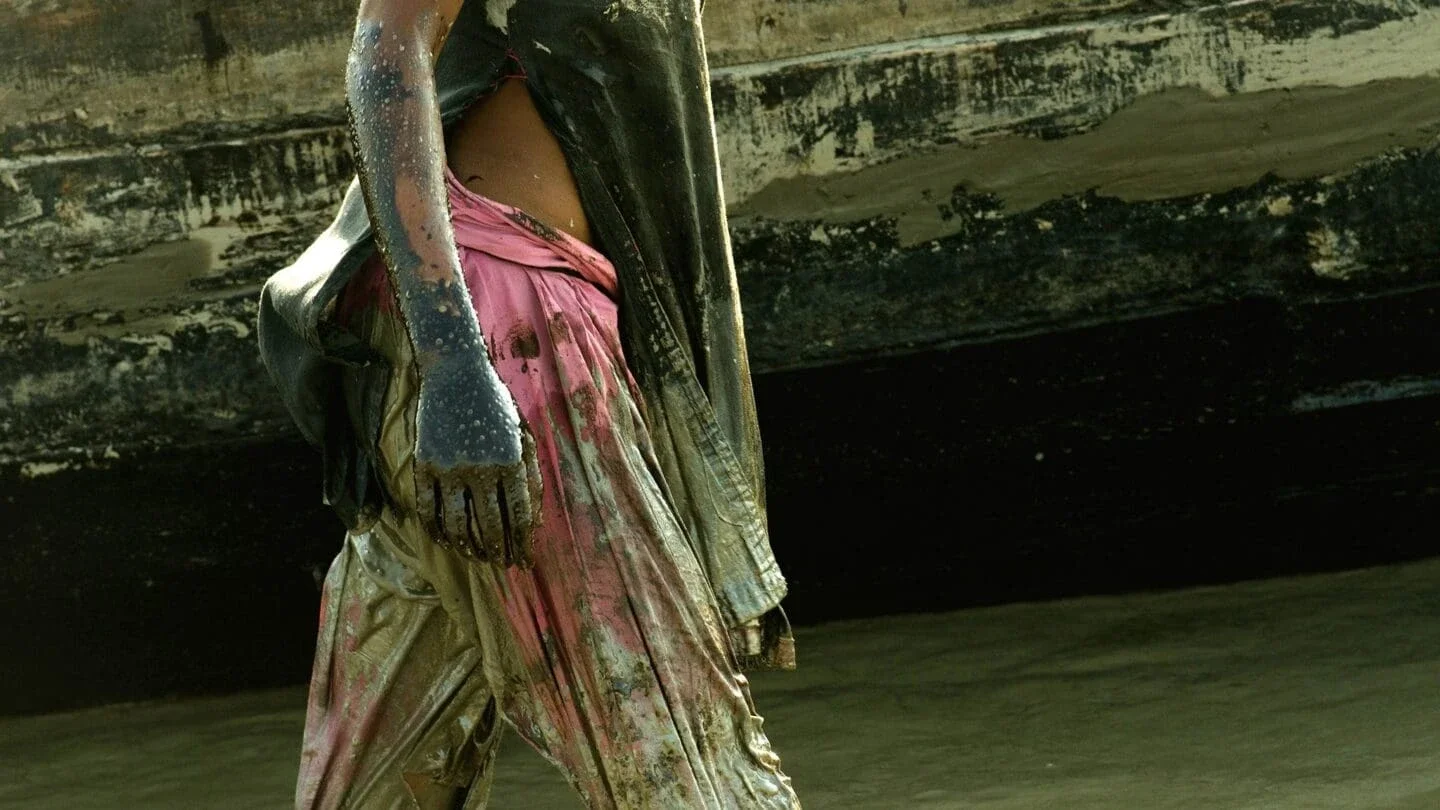 Heavy shipping traffic through the mangrove forests of Sundarbans means regular mishaps. In 2014, An oil tanker emptied 358,000 liters of heavy fuel oil into the biodiverse forest river. It fell upon the local fishers and their families to clean up. (Photo Credit Arati Kumar-Rao)
Heavy shipping traffic through the mangrove forests of Sundarbans means regular mishaps. In 2014, An oil tanker emptied 358,000 liters of heavy fuel oil into the biodiverse forest river. It fell upon the local fishers and their families to clean up. (Photo Credit Arati Kumar-Rao)
More in this Matter of Impact Edition
Latina-Focused Produce Rx Program Benefits Entire Families
Reaching vulnerable communities and improving health outcomes through produce prescriptions.
Read MoreA Food Bank on the Frontlines of Conflict Keeps Delivering
A resilient female coordinator ensures Ecuador's largest food bank continues distribution amid a state of emergency.
Read More